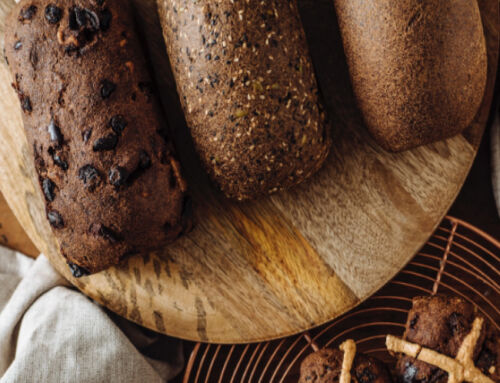We’re bombarded with food marketing every day — claims like ‘all natural’, ‘healthy’ and ‘nutritious’ are practically on every label! But there’s one claim you should be paying attention to and that’s whether or not your food is organic.
There have been many studies into whether organic produce is worth the extra cost. I can tell you from my experience that it is. Here’s why:
- Toxin-free — the number one benefit of eating organic is the reduction of the chemical load on your body. Conventional growers use a variety of pesticides on their produce, which ends up in you!
- A happy environment — toxic and persistent pesticides accumulate in the soil, in the water and in our bodies. By eliminating the use of these pesticides and fertilizers, we are reducing the burden on the environment and not contributing to any further pollution.
- Taste — once you try organic food, I think you’ll agree that it’s hard to go back. Have you ever eaten an organic egg? You’ll notice the yolk is a bright orange rather than an insipid yellow colour and the taste is out of this world!
- Nutrition — right now, there isn’t conclusive proof as to whether organic food is more nutritious than conventionally-grown food. A few studies have reported higher levels of vitamin C, as well as certain minerals and antioxidants but further studies need to be done. There is one nutritional certainty though — it’s no use buying fresh organic food only to let it sit in the fridge, as nutrients oxidize over time, so you’ll lose any benefit.
If you’re still not convinced going organic will work for you, you have a few options.
- Go partially organic — at least start with the dirty dozen. These are the foods that have the highest level of pesticides used on them. They are also tend to be foods that we eat the skin of, where pesticides are directly applied. These include apples, blueberries, strawberries, cucumber, lettuce and kale. The opposite of the dirty dozen is the clean fifteen — the foods with the lowest level of pesticides.
- Try farm-fresh with minimal chemicals — visit your local farmers market where you can have a conversation with the grower and find out what they use on their produce.
- Soak, soak, soak! Make sure to clean your fruits and vegetables by soaking them for 20 minutes in 3 parts filtered water and 1 part vinegar. Rinse well and let dry.
To help you get started with eating organic we recommend the following businesses if you live locally. Check out their websites to find more details:
If you have any more questions, you can call us to book a FREE 15 minute chat with one of our Naturopaths to see how we can help you. Call now on (02) 4961 4075.
Yours in health
Peter Mullen
Have you been living with a health condition for years that hasn’t responded to conventional medicine effectively? Or are you simply not feeling your best?
Click here to download our free guide with tips and steps you can take to feel well again, naturally. This guide covers everything you need for healthy living – diet, sleep, stress and supplements.




